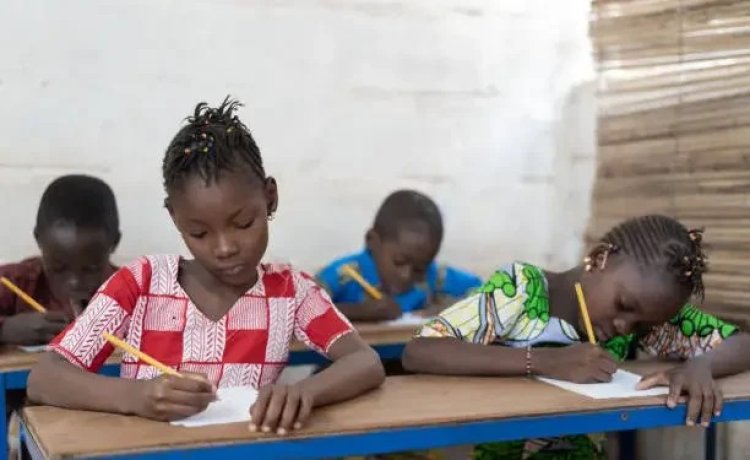Girls’ School Dropout Costs Sub-Saharan Africa $210 Billion in GDP Annually; UN Report reveals
A United Nations report reveals that sub-Saharan Africa loses approximately $210 billion in GDP annually due to high rates of girls dropping out of school, representing over 10% of the region's combined GDP.

The United Nations has disclosed that sub-Saharan Africa suffers an annual economic loss of approximately $210 billion due to the high rate of girls dropping out of school. This alarming figure, revealed in the 2024 report titled “Progress on the Sustainable Development Goals – The Gender Snapshot,” highlights the devastating economic impact of gender inequality in education across the region.
According to the report, “In sub-Saharan Africa, where girls face significant disadvantages compared to boys, the annual cost of girls leaving school early is $210 billion—more than 10% of the region’s combined GDP.” This immense economic drain underscores the critical loss of potential as girls denied education are unable to fully contribute to economic growth.
The United Nations Educational, Scientific and Cultural Organization (UNESCO) further estimates that by 2030, the global annual social costs of basic skills deficits will surpass $10 trillion, a figure exceeding the combined GDP of France and Japan. The report indicates that reducing school dropout rates and improving basic skills by just 1% could increase global labor income by $470 billion and $650 billion, respectively.
Despite some progress, with 5.4 million more girls attending school since 2015, 119.3 million girls worldwide are still out of school. A large portion of this number resides in sub-Saharan Africa, where access to education remains hindered by poverty, gender inequality, and limited resources, further exacerbating the region’s economic struggles.
The economic consequences of girls dropping out of school are far-reaching. When girls are denied education, their ability to secure skilled employment is restricted, significantly reducing their lifetime earnings and stifling national and regional economic development.
The report emphasizes the need for gender-responsive policies to reverse these losses. Recommendations include lowering schooling costs, providing cash transfers to support girls' education, creating safe environments, addressing gender-based violence, and promoting comprehensive sexuality education. Ensuring a diverse and gender-balanced teaching workforce and raising awareness about the importance of girls' education are also vital steps in addressing this challenge.
Globally, 39% of young women fail to complete upper-secondary education, further limiting their participation in the workforce and economic contribution. The report calls for urgent policy interventions to unlock the economic potential of millions of girls and women worldwide.

 Chris Oyeoku Okafor
Chris Oyeoku Okafor 



